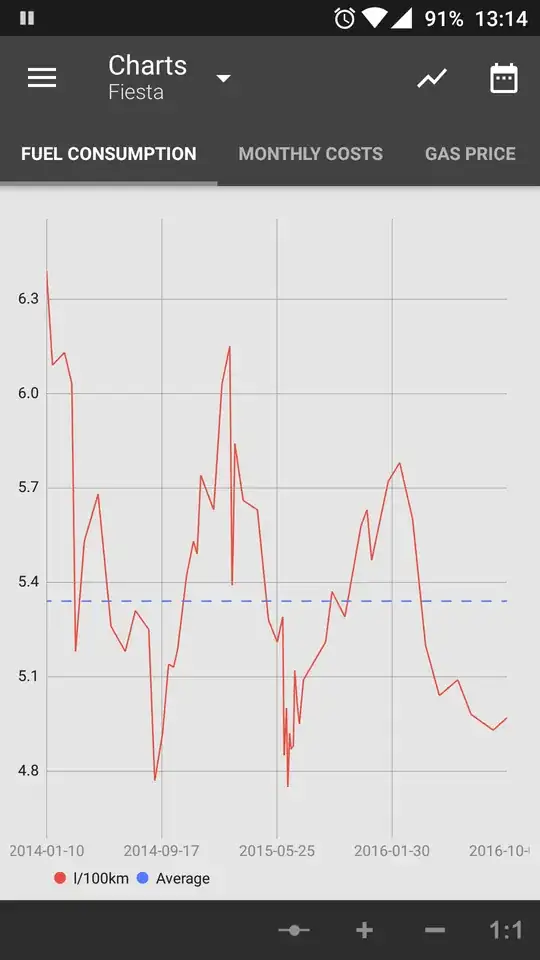I've been keeping track of the fuel my car, a Ford Fiesta Ecoboost 100 hp, uses since the day I got it. In the last three years I've owned it, I've noticed a large (>20%) difference in fuel consumption between driving in winter and driving in summer.
My driving patterns are identical in winter and summer, yet my fuel consumption is much higher in winter.
I understand that cars have slightly more power when cold, but is the difference that big?
Fuel consumption in liters/100 km:
